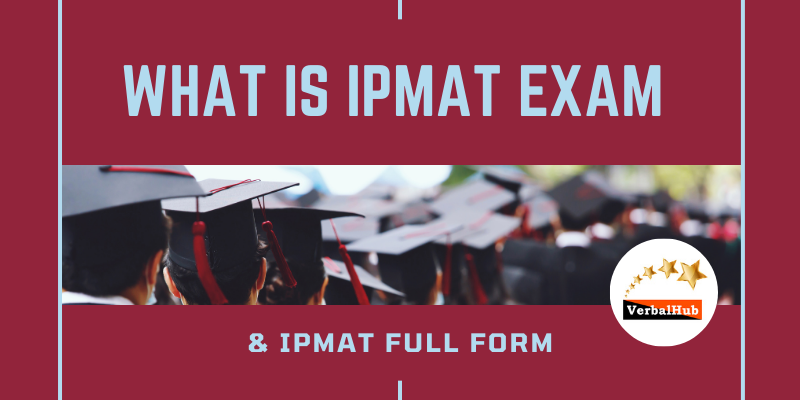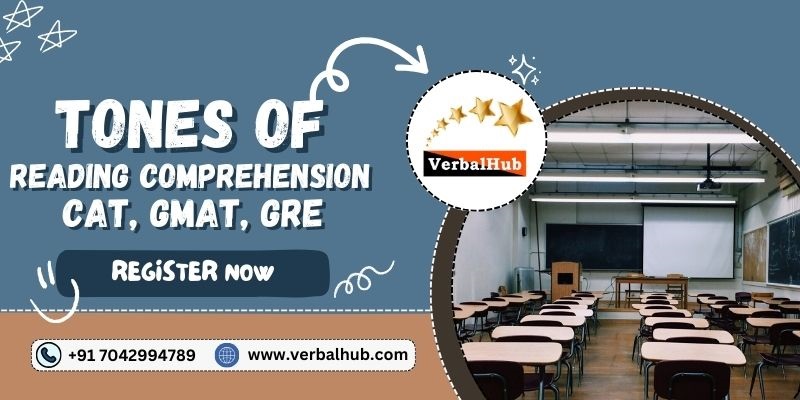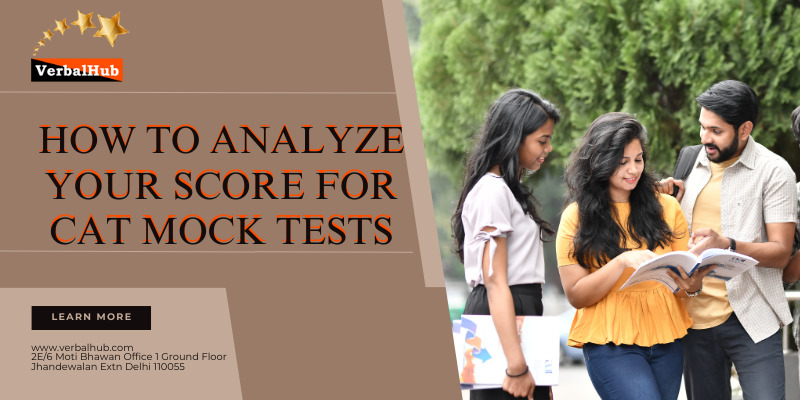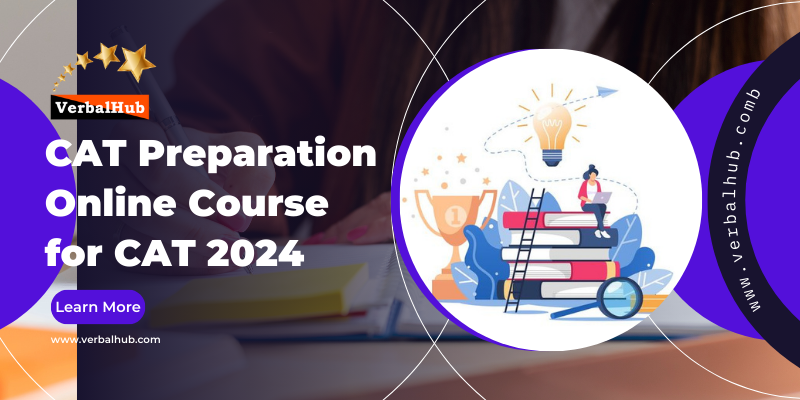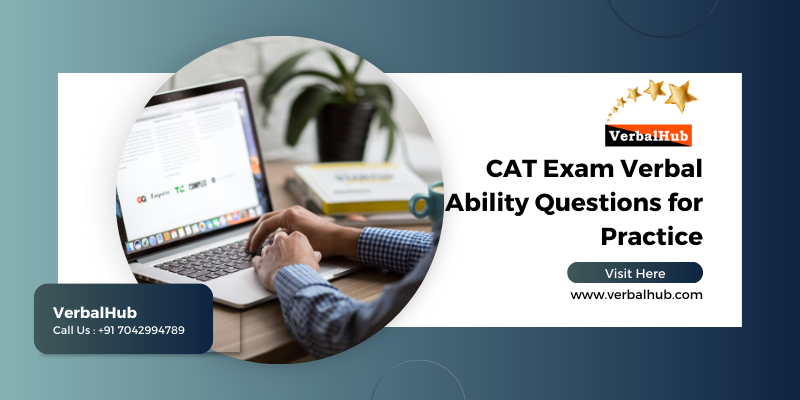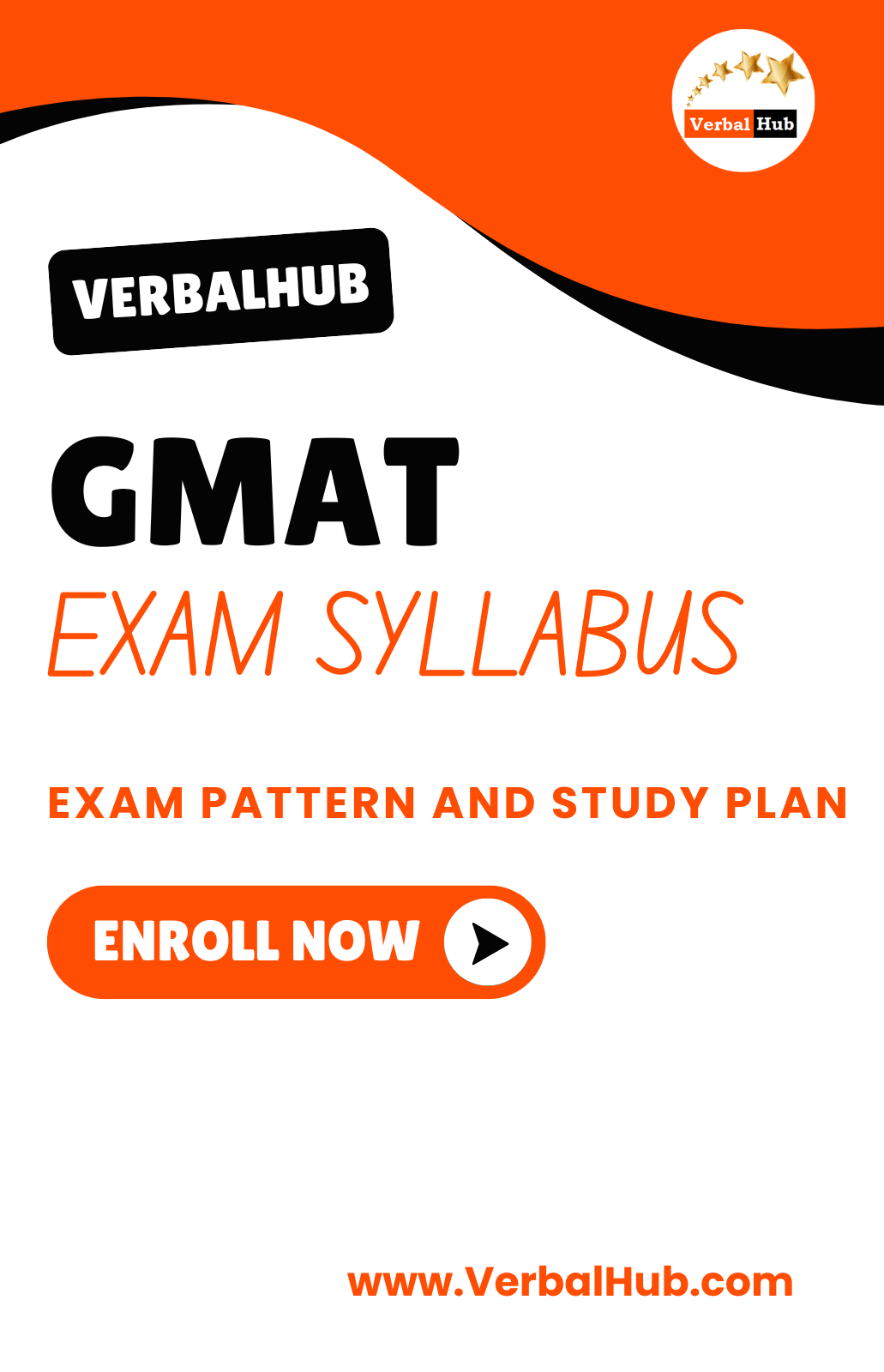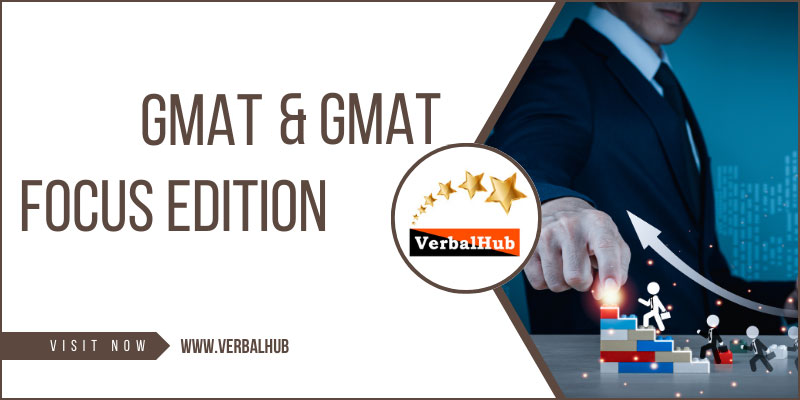
GMAT 2026 & GMAT Focus Edition
The GMAT Focus Edition was introduced in 2026, and implement completely in 2026, making it more efficient and accessible for candidates while aligning the exam content more closely with the skills needed for success in graduate management programs. From 2026 March, GMAT 2026 is known as GMAT Focus Edition which revised some of GMAT sections and reduced GMAT exam length from 182 minutes to 135 minutes. Let’s understand about New GMAT Format,
Sections of GMAT,
GMAT Marking System,
GMAT Exam Eligibility,
GMAT Exam Fees,
GMAT Registration,
GMAT Exam and Result,
Verbal GMAT exam syllabus,
Verbal Prep Plan,
Best Book for Verbal,
Quant Syllabus,
Quant GMAT prep plan,
best book for GMAT Quant,
DI Syllabus,
DI Prep Plan,
DI Books, and
GMAT coaching. Before this blog highlights GMAT 2026, let me address some questions such as how is the GMAT structured, what does the GMAT consist of, and how many questions on GMAT.
| 1. How is the GMAT structured? |
| Duration of new GMAT format is 2 hours 15 minutes with three sections: Verbal, Quant and DI. Score ranges from 205 to 805. First verbal with 23 questions that includes RC and CR with the duration of 45 minutes. Second is Quant with 21 questions that includes Algebra, Arithmetic, and some portions of word problems with the duration of 45 minutes. Third is Data Insight with 20 questions with the duration of 45 minutes. |
| 2. What does the GMAT consists of? |
| GMAT consists of English known as Verbal that includes RC and CR, Math known as Quant that includes Arithmetic and Algebra mainly, and Data Insight. |
| 3. How many questions on GMAT? |
| Total 64 questions are in GMAT Focus Edition which is new GMAT Format. Individually, Verbal 23 Question, Quant 21 questions, and Data Insight 20 questions. |
New GMAT Format
| New GMAT format named GMAT Focus Edition has got some changes to improve following:
|
| Efficiency: |
The new format reduces the total exam time from over 3 hours to 2 hours and 15 minutes, making the test less time-consuming for candidates. |
| Relevance: |
By focusing on essential skills such as quantitative reasoning, verbal reasoning, and data insights, the exam aims to better assess the abilities necessary for business school success. |
| Flexibility: |
The exam provides more control to test-takers, allowing them to choose the order of sections and revisit and change up to three answers per section. |
| Enhanced Feedback: |
The Focus Edition includes detailed performance insights in the official score report, helping candidates understand their strengths and areas for improvement. |
Sections of the GMAT Focus Edition
| The GMAT exam format for 2026 has undergone several changes, introducing the GMAT Focus Edition. Sections of GMAT Focus Edition with changes are: |
| Sections and Duration: |
| Three Sections: |
Verbal, Quant, and Data Insights. |
| Each section has 45 minutes to complete, making the total exam duration 2 hours and 15 minutes, with an optional 10-minute break available between sections. |
GMAT Sections Details:
| Verbal: |
23 questions, mainly critical reasoning and reading comprehension. |
| Quant: |
21 questions focusing on problem-solving without including data-sufficiency questions. Topics covered include arithmetic and algebra. |
| Data Insights: |
20 questions, mainly two-part analysis, table analysis, multi-source reasoning, and graphics interpretation. This section is similar to the previous integrated reasoning section but is now a larger part of the overall score. |
| Note: |
It’s a Computer-Adaptive Test: The GMAT Focus Edition remains a computer-adaptive test, adjusting the difficulty level based on performance. |
| Flexible Testing Options: |
Candidates can choose the order of sections. They can bookmark questions three times in one section. |
GMAT Marking System
| Score Range: |
The final score ranges from 205 to 805. |
| Individual Section Scores |
| Verbal + Quant + Data Insight: |
| Each section is scored on a scale of 60 to 90. |
| Note: |
The score is calculated based on the number of correct options and the level of questions. The section is adaptive, meaning the difficulty adjusts based on your responses. |
Calculation Process
| Adaptive Testing: |
| The GMAT exam is computer-adaptive. The test starts with a moderately difficult question. The difficulty level changes as per your improved performance. Correct answers lead to higher-level questions and the incorrect answer leads lover lower-level questions. |
| This adaptive nature ensures that the test is orientated to your ability level, providing a more accurate measure of your skills. |
| Scaling and Equating: |
| The raw scores from each section are transformed into scaled scores. This conversion process maintains consistency and fairness by compensating for minor difficulty differences across various test versions. |
| The scaled scores for Quantitative, Verbal, and Data Insights are then combined to calculate your total score. |
| Example Calculation: |
| Suppose you score 75 in Quantitative Reasoning, 80 in Verbal Reasoning, and 78 in Data Insights. |
| Your total score would be derived from these individual section scores, falling within the 205 to 805 range. The exact calculation method for combining these scores into a total score is proprietary to GMAC but ensures that the total score reflects your overall performance accurately. |
| Understanding the GMAT scoring explained mechanism helps in strategic GMAT preparation tips, allowing you to focus on areas that can significantly impact your overall score. |
GMAT Exam Eligibility
| Age: |
GMAT test takers should be not less than 18 years old. If a candidate is between 13 and 17 years old, they need to submit a permission letter of guardian. |
| Educational Background: |
No particular educational background is necessary to take the GMAT exam. However, most candidates have an undergraduate degree, as the exam is typically used for admission to graduate business programs. |
| Identification: |
Candidates need a valid, government-issued ID (e.g., passport, driver's license) to register and take the test. |
GMAT Exam Fees
| GMAT Exam Fee: |
The fee for the GMAT Focus Edition exam is typically around USD 250. However, there may be slight differences depending on country to country. |
| Additional Costs: |
| Rescheduling Fee: |
$50-USD 150, depending on the gap of days between cancel days and the exam date. |
| Cancellation Fee: |
$80-USD 150, depending on the gap of days between cancel days and the exam date. |
| Additional Score Reports: |
USD 35 each. |
| Enhanced Score Report: |
USD 30. |
GMAT Registration
| Create an Account: |
Visit the official GMAT website and sign up. |
| Schedule the Exam: |
Options for date, time, and location are available. You can mark them and submit the registration fee with final confirmation. |
| Confirmation: |
You will get an email of confirmation with details of the appointment. |
GMAT Exam and Result
| Study Materials: |
Utilize official GMAT prep materials, which include guides, practice tests, and question banks. |
| Prep Courses: |
It is always advisable to be under the guidance of experts in a GMAT prep course. |
On Test Day:
| Arrival: |
Prefer to arrive 30 minutes early. For online exams, ensure your testing environment meets the requirements. |
| Identification: |
Present the required identification. |
| Breaks: |
You will have two optional 8-minute breaks during the exam. |
| After the Exam: |
| Unofficial Scores: |
You will receive an unofficial score report just after ending the GMAT exam. |
| Official Scores: |
The official score report is available within 7 business days and sent to the schools you selected. |
| Score Validity: |
5 years. |
| Additional Information |
| Retaking the Exam: |
Five times in a year and 8 times in the whole life cycle. |
| Accommodations: |
Available in special cases for that you have to get approval |
Verbal GMAT Exam Format
Verbal of the GMAT Focus Edition evaluates a candidate's ability to understand, analyze, and apply evidence. Here are the main topics and types of questions of GMAT Focus Edition as per GMAT 2026.
| Reading Comprehension: |
| Structure: |
Typically includes a passage followed by 3/4 questions. |
| Topics: |
Passages can cover a wide range of subjects, including social sciences, biological sciences, physical sciences, and business-related topics. |
| Passage Understanding: |
Candidates read and understand the central ideas, supporting details, logical structure, and tone of written passages. |
| Critical Analysis: |
Evaluating arguments and information presented in the passages. |
| Inference: |
Drawing conclusions and making inferences from the information provided. |
| Critical Reasoning: |
| Structure: |
Short passages followed by one question about the argument's logical structure. |
| Skills Tested: |
Understanding argument structure, identifying flaws, and evaluating the relevance and impact of new information on the argument |
| Argument Analysis: |
Understanding and evaluating arguments in short passages. |
| Assumptions: |
Identifying assumptions underlying arguments. |
| Strengthening/Weakening Arguments: |
Determining what additional information would strengthen or weaken the arguments presented. |
| Drawing Conclusions: |
Making logical conclusions based on given premises. |
GMAT Verbal Section Study Plan
Creating an effective GMAT prep plan is essential for success, especially with the new GMAT coaching program format introduced for GMAT 2026. This updated structure requires a strategic approach to cover all sections thoroughly. A well-rounded GMAT prep plan should include comprehensive study materials, practice tests, and a detailed review of the revised exam components to ensure familiarity and confidence on test day. Preparing for the GMAT verbal section requires a strategic approach to master the various question types and improve your overall performance. Here are some effective strategies:
| 1. Build a Strong Foundation |
| Reading Skills: |
Designate a portion of each day for verbal question practice texts, such as articles from The Economist, academic journals, or high-level business publications. |
| 2. Practice Regularly |
| Daily Practice: |
Set aside daily time for practicing verbal questions. Consistent practice helps reinforce concepts and improve speed. |
| Official GMAT Questions: |
Use official GMAT questions for practice, as they reflect the style and difficulty of the actual exam. |
| 3. Develop a Strategy for Each Individual Concept |
| Reading Comprehension: |
Skim the passage to get a general understanding.
Thoroughly review the questions before delving into the passage.
Take notes or highlight key points for reference when responding to the questions. |
| Critical Reasoning: |
Identify the conclusion, premises, and assumptions of the argument.
Practice common argument structures and question types (e.g., strengthen, weaken, assumption). |
| 4. Complete Full-Length Practice Exams |
| Replicate Testing Environment: |
Engage in full-length practice exams under timed conditions to develop endurance and familiarize yourself with the test structure. |
| Evaluate Results: |
Carefully review your responses, with a focus on the incorrect ones, to identify errors and extract valuable lessons from them. |
| 5. Seek Expert Guidance |
| Coaching: |
Consider enrolling in a GMAT coaching program for structured learning and personalized guidance. |
| Study Groups: |
Join study groups or forums to discuss strategies, share resources, and get support from fellow test-takers. |
Best Book GMAT Focus Edition Verbal
For those preparing for the GMAT 2026, finding the best book for the GMAT verbal section is as important as writing the GMAT focus edition exam. With the introduction of the new GMAT format, it's essential to stay updated on the changes in the GMAT sections, which now include enhanced assessments in verbal reasoning, along with other core areas. The revised structure of the GMAT 2026 exam demands a strategic approach to mastering the verbal section, making the right study resources indispensable for success.
| 1. The Official Guide for GMAT Review (by GMAC): |
This book is the official guide provided by MBA.com. It covers all sections, including verbal, and offers a real-time experience of the GMAT exam. |
| 2. The PowerScore GMAT Critical Reasoning Bible: |
This is one of the best GMAT prep books which is commonly recommended for in-depth critical reasoning section and it provides detailed explanations. |
| 3. Kaplan GMAT Verbal Workbook: |
This workbook provides targeted practice for the verbal section and GMAT questions for practice with solutions. |
| 4. Veritas Prep GMAT Verbal Reasoning: |
Veritas Prep offers a series of books focused on different aspects of the GMAT. Their Verbal Reasoning book is particularly useful for comprehensive coverage and strategies. |
Quant GMAT Test Structure
The new GMAT format for 2026 introduces several changes aimed at enhancing the test-taking experience. The GMAT exam syllabus remains comprehensive, covering, as per GMAT Focus Edition, Data Insight, verbal reasoning, and quantitative aptitude. The updated GMAT exam format includes a revised structure to better assess applicants' skills and potential. Notably, the Quant GMAT section has been refined to focus on essential mathematical concepts and problem-solving abilities. Aspiring candidates should familiarize themselves with the changes in the Quant GMAT 2026 section to maximize their performance and achieve their desired scores. If you have any plans to prepare for the GRE, you can check the GRE to GMAT conversion.
| Arithmetic: |
| Basic Operations: |
Division, multiplication, subtraction, and addition. |
| Fractions, Decimals, and Percents: |
Converting between them and solving related problems. |
| Ratios and Proportions: |
Understanding and solving problems involving ratios, proportions, and rates. |
| Number Properties: |
Properties of integers, including divisibility, prime numbers, and even/odd numbers. |
| Algebra: |
| Equations: |
Solving linear equations, inequalities, and systems of equations. |
| Expressions: |
Simplifying algebraic expressions. |
| Functions: |
Understanding function notation and evaluating functions. |
| Quadratics: |
Solving quadratic equations and understanding their properties. |
| Word Problems: |
| Translating Word Problems: |
Converting word problems into mathematical equations. |
| Rate Problems: |
Solving concerns related to time, speed, and distance. |
| Work Problems: |
Problems involving multiple workers and work rates. |
| Mixture Problems: |
Problems involving combining different substances or solutions. |
GMAT Quant Prep Strategy
Crafting a targeted preparation strategy is crucial for tackling the GMAT, particularly the GMAT Quant Section. Successful GMAT prep entails becoming adept at various Quant practice that strengthens to mug up and revise the Math rules. By sharpening your skills in these areas, you can boost your confidence and accuracy, leading to better performance on the actual GMAT exam.
| 1. Develop a Strategy for Each Question Type |
Pay attention to the question to know what it wants to ask.
Break the problem down into manageable steps.
Use estimation and approximation where applicable to save time.
|
| 2. Take Full-Length Test |
| Replicate Exam Conditions: |
Complete full-length practice tests with a timer to build endurance and become familiar with the test format. |
| Evaluate Your Performance: |
Carefully examine your answers, focusing on the incorrect ones, to identify your mistakes and learn from them. |
| 3. Focus on Time Management |
| Pacing: |
Create a pacing strategy to allocate your time effectively, ensuring you can address all questions within the given timeframe. |
| Practice Timing: |
Use timed practice sessions to improve your speed and accuracy. |
| 4. Seek Expert Guidance |
| Coaching: |
Consider enrolling in a GMAT coaching program for structured learning and personalized guidance. |
| Study Groups: |
become part of the student group, practice group, and learning group to get support from fellow test-takers. |
| 5. Practice with Advanced Questions |
| Challenge Yourself: |
Practice with advanced-level questions to push your limits and prepare for the hardest questions on the test. |
| Adaptive Practice: |
Use adaptive practice tests and tools to simulate the GMAT’s adaptive nature. |
GMAT Books for GMAT Quant Prep
For those gearing up for the GMAT in 2026, it's essential to grasp the new GMAT format. Effective preparation hinges on utilizing the top-rated GMAT prep books orientated to the new structure. These books for quant sections of the GMAT are the best guide to dealing with GMAT quant.
| 1. The Official Guide for GMAT Review 2026 |
| Description: |
Published by the Graduate Management Admission Council (GMAC), this book provides real GMAT questions from past exams, offering the most accurate representation of the test. |
| Features: |
Includes a diagnostic test, hundreds of practice questions along with explanations. |
| 2. Manhattan Prep GMAT Quantitative Strategy Guide Set |
| Description: |
This set of books from Manhattan Prep is known for its in-depth coverage of all Quant topics tested on the GMAT. |
| Features: |
The series includes individual books for every concept of GMAT Focus Edition. For example, Number Properties, word problems, and Fractions, etc. |
| 3. Kaplan GMAT Math Workbook |
| Description: |
Kaplan’s workbook is a great resource for building a strong foundation in Quant. |
| Features: |
Offers comprehensive practice problems, detailed explanations, and test-taking strategies. |
| 4. GMAT Official Advanced Questions |
| Description: |
Also published by GMAC, this book is designed for those aiming to achieve a high score. |
| Features: |
Contains 300 hard GMAT questions, including Quant and Verbal, with detailed explanations. |
| 5. Veritas Prep GMAT Quantitative Review |
| Description: |
Veritas Prep offers a detailed guide to the Quant section, focusing on both strategy and content. |
| Features: |
Includes practice questions, step-by-step solutions, and test-taking techniques. |
| 6. PowerScore GMAT Math Bible |
| Description: |
it shares detailed explanations with conceptual strategies. |
| Features: |
Detailed discussions on math concepts, numerous practice problems, and strategic approaches. |
DI GMAT Exam Syllabus
The GMAT exam syllabus covers various aspects of logical reasoning and aptitude via maths known as Quant, English known as Verbal, and Interpretation known as Data Insight. The GMAT exam format is structured to assess preparedness for modern business studies. The GMAT test structure includes Quantitative Aptitude, Verbal Aptitude, and Data Insight. Each of these GMAT sections is crafted to evaluate specific skills, ensuring a comprehensive assessment of a candidate's capabilities. The Data Insights section of the GMAT Focus Edition is a new topic that assesses the analytical skills of interpretation of data. The key topics and types of questions included in Data Insight are:
| Data Sufficiency: |
| These questions assess the capability to evaluate a quantitative problem, identify the pertinent data, and ascertain when sufficient information is available to resolve the issue. |
| Example: |
Assessing whether the provided statements contain enough information. |
| Multi-Source Reasoning: |
| This Data Insight section is all about the analysis of data from multiple sources. For example, graphics, tables, and text passages. |
| Example: |
Identifying discrepancies among different sources of data or drawing inferences based on provided information. |
| Table Analysis: |
| These questions involve sorting and Examining a data table (resembling a spreadsheet) to identify relevant information or determine if specific conditions are met. |
| Example: |
Analyzing a table to answer specific questions about the data it contains. |
| Graphics Interpretation: |
| These questions require interpreting information presented in graphical formats such as bar charts, pie charts, scatter plots, and statistical curves. |
| Example: |
Making inferences or discerning relationships from graphs and charts. |
| Two-Part Analysis: |
| These questions evaluate the capability to tackle intricate problems that may require quantitative and/or verbal reasoning skills. |
| Example: |
Solving problems that require evaluating trade-offs, solving simultaneous equations, or discerning relationships between two entities. |
Example Question Types
| Data Sufficiency: |
| Statement-based questions require determining if one or both statements provide sufficient information to answer the question. |
| Multi-Source Reasoning: |
| Questions that involve analyzing information from multiple tabs or data sets and drawing conclusions based on the combined data. |
| Table Analysis: |
| Sorting and filtering data within a table to find relevant information to answer specific questions. |
| Graphics Interpretation: |
| Reading and interpreting data from visual representations to answer related questions. |
| Two-Part Analysis: |
| Answering paired questions that together assess a candidate's ability to perform complex analyses. |
GMAT Data Insight Prep Strategy
Preparing for the GMAT test requires a focused strategy, especially when it comes to the Data Insight section. Effective GMAT prep involves familiarizing yourself with the various data interpretation tasks, such as analyzing graphs and charts, to excel in this section. By honing your skills in these areas, you can ensure a higher level of confidence and accuracy on the actual GMAT test.
| Review Basic Concepts: |
Establish a strong grasp of core principles in statistics and data analysis, and logical reasoning. |
| Practice with Real Data: |
Use real-world data sets to practice. Websites like Kaggle or public datasets can provide ample practice material. This will help you become comfortable with interpreting and analyzing actual data. |
| Utilize Official GMAT Materials: |
Practice with official GMAT prep materials and practice tests. These materials are crafted to mirror the authentic exam structure and challenge level. |
| Review Mistakes: |
After each practice session, carefully analyze your errors and comprehend the reasons behind them. |
| Learn to Interpret Graphs and Charts: |
Dedicate time to mastering the swift and precise interpretation of various graph and chart types, including bar graphs, line graphs, pie charts, and scatter plots. |
GMAT Books for Data Insight
For those preparing for the GMAT 2026, understanding the new GMAT format and updated GMAT exam syllabus is crucial. To effectively prepare, candidates should focus on the best books for GMAT as per the new GMAT format. These resources mainly cover full-scale guides on each GMAT sections, including Quant, Verbal, and Data Insight. Ensuring you have the latest study materials that align with the current GMAT syllabus will help you develop a serviceable study plan and enhance your performance on the exam.
| 1. "GMAT Official Guide 2026" by GMAC |
| This official guide provides comprehensive practice questions and in-depth insights straight from the developers of the GMAT. It's essential for understanding the format and types of questions you'll encounter in the Data Insights section. |
| 2. "Data Sufficiency for the GMAT" by Manhattan Prep |
| A specialized book that delves deep into the Data Sufficiency questions, helping you master the logical reasoning and analytical skills needed for the Data Insights section. |
| 3. "Statistics for Business and Economics" by Paul Newbold, William L. Carlson, and Betty Thorne |
| A thorough textbook that covers statistical concepts and data analysis techniques, providing a strong foundation for interpreting and analyzing data in the Data Insights section. |
| 4. "Data Interpretation Decoded" by Oliveboard |
| A dedicated book for mastering data interpretation, offering practice sets and strategies to tackle graphical and tabular data analysis, which are integral to the Data Insights section. |
| 5. "GMAT Integrated Reasoning and Essay" by Manhattan Prep |
| This book provides targeted practice for the Integrated Reasoning section, which includes data interpretation and analysis skills essential for the Data Insights section. |
Verbalhub GMAT Focus Edition Coaching
Preparing for the GMAT requires dedication, determination, and discipline with multi-sources exploration. VerbalHub offers result-centric GMAT coaching options that ensure that every student can find the perfect fit for their needs. The options are available for both GMAT online coaching and GMAT coaching classes.
Why VerbalHub for GMAT Coaching?
| First: Orientated GMAT Classes |
| VerbalHub GMAT coaching understands that every student is unique. Its GMAT classes are formed to train GMAT test takers with diverse learning preferences. With small class sizes, personalized attention, and a curriculum crafted by experts, our classes ensure that you get the most out of your preparation. |
| Second: Intensive GMAT Training |
| For those looking to maximize their scores in a short period, Verbalhub’s intensive GMAT training programs are the perfect solution. These sessions are packed with strategies, tips, and practice materials that target every section of the GMAT, ensuring you're well-prepared for test day. |
| Third: Flexible GMAT Online Coaching |
| VerbalHub’s GMAT online coaching provides the same high-quality instruction as its in-person classes but with the convenience of learning from anywhere. its online platform offers interactive live sessions, recorded lectures, and diverse sources of study materials to help you stay on track. |
| Fourth: Success Stories with VerbalHub GMAT Coaching |
| Many students have achieved their dream GMAT scores with VerbalHub’s coaching. Here’s what some of them have to say: “VerbalHub’s GMAT classes provided me with the structure and support I needed to excel. The instructors were experts in their fields and consistently available to address any questions or concerns. I couldn’t have done it without them!” – Aditi S. |
| “The online coaching option was a game-changer for me. I could fit my study sessions around my work schedule, and the interactive platform made learning engaging and effective.” – Rahul M. |
| “The VerbalHub GMAT course was comprehensive and thorough. The practice materials were top-notch, and The techniques I acquired enabled me to confidently approach and solve even the most challenging questions.” – Sneha P. |
Join Verbalhub GMAT Coaching
Explore VerbalHub’s range of GMAT coaching options and find the perfect fit for your needs. Whether you’re aiming for a top-tier business school or looking to boost your career, VerbalHub is here to help you achieve your goals. From result-centric classes and intensive training to flexible online coaching, VerbalHub’s GMAT course is designed to meet the diverse needs for a GMAT high score.














